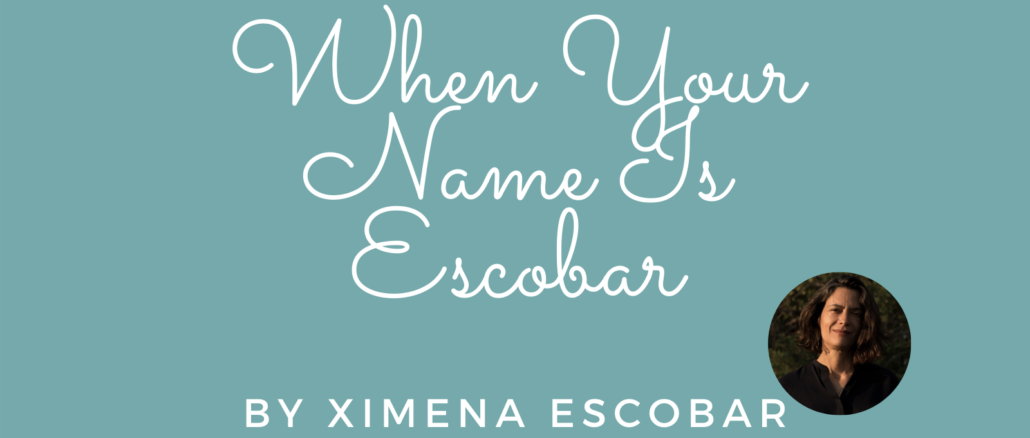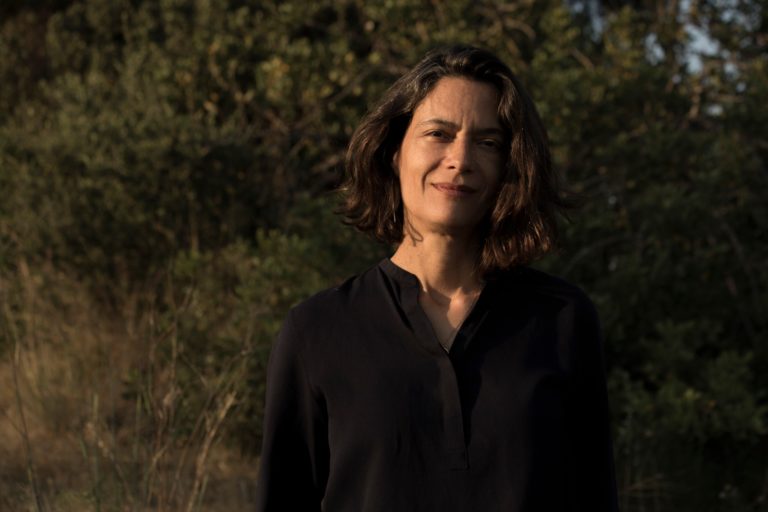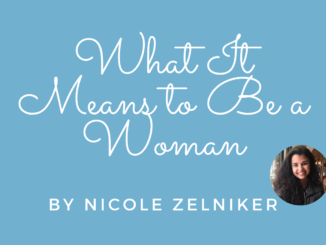
It happened again yesterday. I had been invited to give a lecture on Impact Management at a business school in Geneva, Switzerland, where I live. After the session, one of the students approached me and, with a roguish smile, asked me if I was related to Pablo Escobar. “Here we go again,” I thought. In the thirty years that I’ve been living outside of my home country, Colombia, I have heard this question more often than I care to count.
No one in Colombia would ask this because the last name Escobar is quite common, like Davis or Parker in the UK or the USA. Outside the country though, the question is raised by all kinds of people. I recall a Swiss Ambassador in Geneva asking me if I was related to the mafia boss. In Washington, the question came from a journalist to whom I was teaching Spanish, as a student job. He was preparing to travel to Panama to interview Noriega, “Are you related to Pablo?” he asked. I remember responding, “If I were, I wouldn’t need to work.” The list of people putting the question goes on and on: friends, professors, neighbours, colleagues, even my dermatologist, and of course, the incarcerated students I teach in my volunteer work. Prisoners find it hilarious, especially those detained on charges of drug trafficking: their English teacher’s name is Escobar. Mischievous curiosity respects no barriers of social class, nor educational level, and I would say gender too, but on second thoughts, I realize the question is predominantly asked by men. And here’s the thing: the question upsets me. I have never been able to brush it off lightly or find it amusing.
But why can’t I just dispel it as harmless? Why am I hurt? After all, we do share the name. Formulated in a neutral, factual way, Are you related to Pablo Escobar? What’s wrong with asking? And how come, after hearing this question so often, I still don’t have the right, quick and witty answer?
The question disturbs me on three accounts:
- It’s a stereotype
Type “Escobar” on a Google search engine. You will see page after page of news on Pablo Escobar, the gangster, the criminal, to some also a philanthropist. It’s all about “Pablo Escobar,” even if you only wrote “Escobar.” Apparently, he owns the entire “Escobar” domain. There are other notable Escobars, including my sister, the writer Melba Escobar, whose books have been translated into more than 17 languages. Or Andres Escobar, the young soccer star murdered after striking an own goal in the 1994 World Cup.
The person asking has a subtle sense of superiority which results, I presume, from the fact that he [1] has recognized an infamous last name. He feels knowledgeable and informed. He feels clever. But, all he really knows is a cliché about Colombia.
When you migrate to a new culture you quickly realize that only a few stereotypes made it across the ocean. I recall seeing a hand-painted sign across a refugee’s tent in Greece, “Iraq is not a war,” it read. This simplification of one’s country, or reduction to a stereotype, is a pain experienced by all migrants. Cultures are a rich tapestry of references, symbols, history, smells, landscapes, flavours, connections, and meanings. A migrant leaves most of her identifiers and references behind.
The true-crime entertainment industry, and society’s fascination with villains, has contributed to the Escobar = Drugs = Colombia oversimplification. The success of the Netflix series Narcos speaks to this obsession. I’ve often been asked what I think of Narcos. I’ve actually never watched it. I lived in Cali in the late 70s and early 80s and I recall the terror. Those of us who witnessed from close up the unfolding of that crude reality, don’t want to see the remake. Even less if it portrays Pablo Escobar as a hero. As my nephew put it recently when someone asked him about Narcos, “I saw the original and I didn’t like it.”
And this leads me to the second issue I have with this question,
- The person asking has no clue who my father was and rarely cares to learn.
Pablo Escobar was a criminal; he killed over 4,000 people. My father, Rodrigo Escobar Navia, on the other hand, was a man of virtue. He was born in Cali to a middle-class family. He studied law, economics, and earned a scholarship to do a masters in Paris where he met my Spanish mother. They settled down in Colombia where he occupied and excelled in various public offices, including state secretary, minister of the interior, mayor of Cali. Once, returning to Bogota from a UN meeting in New York, where he had represented the government, he asked the Ministry of Foreign Affairs what procedure he should follow to reimburse the per diem as he had shortened his trip by a day. They responded there was no reimbursement procedure; nobody had ever tried to return public money. He was also one of the first men in Colombia to actively search for a negotiated peace to our country’s protracted conflict. And as it turns out, my father was one of the first voices to warn Colombian society about the perils of the drug business, and how it would jeopardize our institutions.
Therefore, it pains me that the person asking if I’m related to the King of Cocaine, not only knows nothing about my father, but is unlikely to care.
A further reason the question offends me is,
- Bad reputation should not be inherited
Children of criminals carry no moral responsibility for their parents’ wrongdoing. If they carry no moral guilt, they should be free of whatever stain their parents have left behind. We are morally responsible only for our acts. I think of this when I see children and youngsters visiting their parents in prison. To stop the chain of violence, crime, trauma, and hurt, we should attribute the blame and the ensuing reputation, only to the perpetrator of the crime.
I have often wondered about the drug lord’s children. How have they dealt with the stigma throughout their lives? When Pablo Escobar was gunned down in 1993 by the CIA and the Colombian police (or committed suicide when he felt cornered, as some say), he was survived by two children, Juan Pablo and Manuela, sixteen and nine years old at the time. I feel sympathy for them. I imagine the number of times they have seen the interlocutor’s wicked smile, his sense of moral superiority, resulting, I presume, from the fact that the interrogator, unlike them, does not descend from criminals.
Intrigued by my own reflections, I find myself surfing the web watching video interviews with Sebastian Marroquin -or Juan Pablo Escobar – before he was obliged to change his name because he couldn’t even buy a plane ticket under his original name. When at the age of 16, he heard of his father’s death, he broadcasted to the world that he would kill all the “motherfuckers” responsible. But he followed this ten minutes later with another broadcast, retracting the threat and promising instead to be a man of peace. A remarkable change of heart or perhaps change of strategy, a survival mechanism as, even at that young age, his head had a ransom on it of $3 million USD. Close to 30 years later he appears to have delivered on his second promise, to be a man of peace. In an interview from February 2020, I hear him say he has met 150 families, all victims of his father’s atrocities, to search for reconciliation and ask for forgiveness. He comes across as a wise, calm man, who turned away from the world of crime to search for some sort of closure for himself and for the relatives of the victims. And yet, he says in those videos how he is reminded constantly of his father’s crimes, “I was born guilty,” he says, “simply because I am my father’s son, I am constantly discriminated against. At times I have been denied even a bank account because with that name, I could launder money.” Shouldn’t people be judged for their acts, and not for those they might commit?
The Escobar=drugs connection hurts the memory of my father, and it hurts the pride I have in my country. Here is the insult. A subtle one, of course, and entirely without intent, I am sure. In our globalized world, we should be aware that what we think we know about someone else’s culture may be a simple cliché.
It has taken me 1444 words to respond to a question – Are you related to Pablo Escobar?- that can be answered with a yes or no. The next time I’m asked, I’ll say, “Give me your email, I’ll send you my answer.”
—————-
[1] I’ll use the male pronoun because, as mentioned, it is mostly men who ask.
Ximena Escobar
Ximena Escobar is Colombian, Swiss, and Spanish, and mother of three adult children. She advises on social impact, and co-authored a guidebook on Impact Investment (Willey 2015). She volunteers in prison teaching English and Spanish, and she writes short stories and poetry. Ximena co-founded a center for the arts in Mompox, Colombia.



